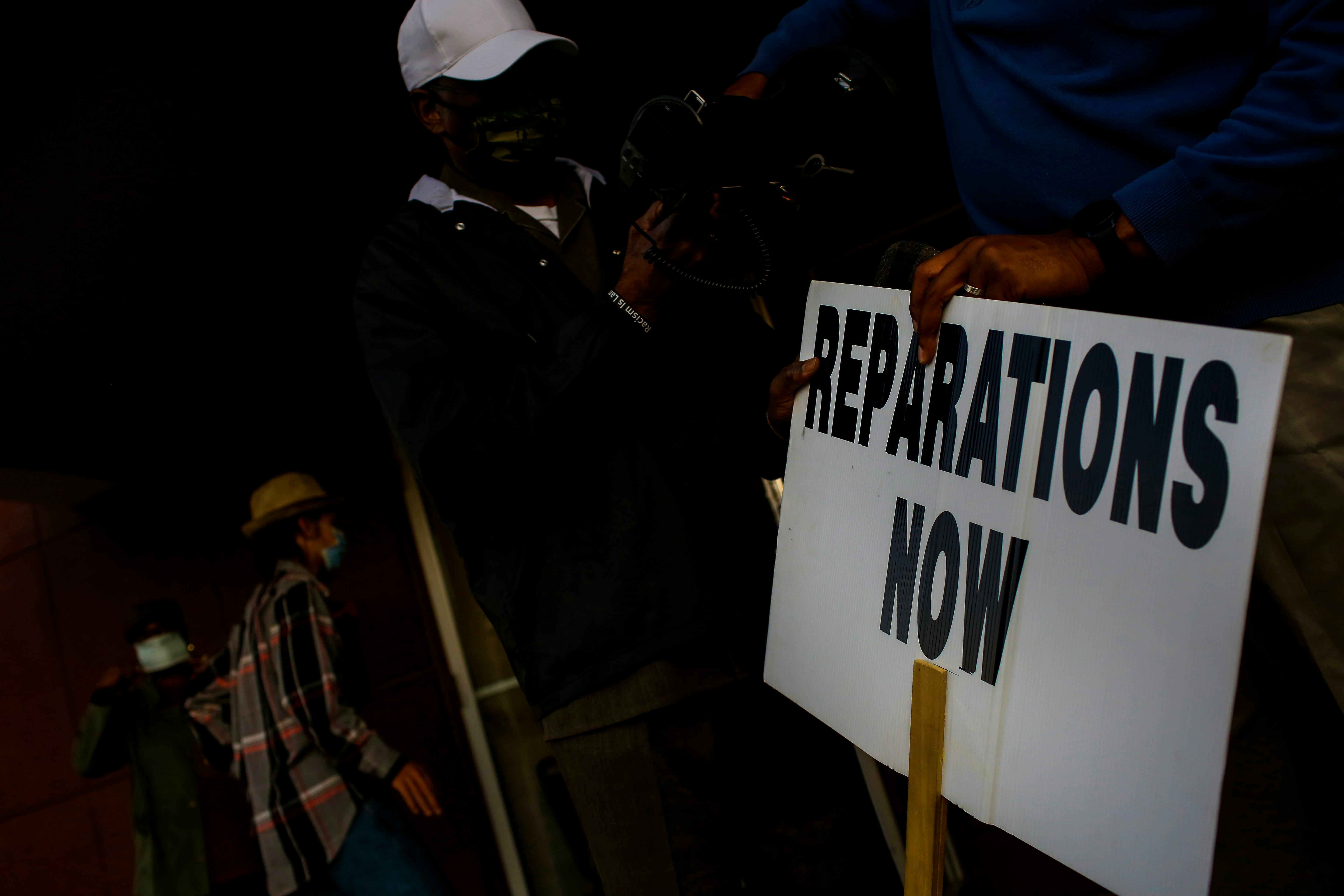
Most Black people across America are well familiar with the line "40 acres and a mule." In the years since Union General William Tecumseh Sherman first wrote it in an 1865 wartime order, it's come to stand as a symbol of the U.S.'s broken promise of reparations. But as conversations around reparations once again pick up following last summer's nationwide uprisings, the United Nations's human rights chief says countries need to implement a "wide range of reparations measures," particularly for Black people.
On Monday, Michelle Bachelet, the U.N. high commissioner for human rights, presented a report prompted by the police murder of George Floyd in Minneapolis. First released in June, the report includes discussions with over 300 experts and Black people across the globe to examine how countries are responding to racism. Spoiler alert: None of them are doing all that great.
During the council's meeting in Geneva, Switzerland, Bachelet said that the report "could not find a single example of a state that has comprehensively reckoned with its past or accounted for its impacts on the lives of people of African descent today," per the Associated Press. She went on to say that countries must "create, reinforce, and fully fund comprehensive processes — with full participation from affected communities — to share the truth about what was done, and the harms it continues to inflict."
Of course, the U.N.'s report isn't saying anything that Black people themselves haven't already pointed out. Time and time again, Black people have demanded reparations for the horrific violence inflicted upon them through colonialism, the trans-Atlantic slave trade, and more. In fact, Jamaican lawmakers are right now preparing to demand billions in reparations from Britain.
"We are hoping for reparatory justice in all forms that one would expect if they are to really ensure that we get justice from injustices to repair the damages that our ancestors experienced," Olivia Grange, Jamaica's minister of sports, youth and culture, told Reuters. "Our African ancestors were forcibly removed from their home and suffered unparalleled atrocities in Africa to carry out forced labor to the benefit of the British Empire," she continued. "Redress is well overdue."
Conversations around reparations often get caught up in the money aspect. In the United States, reparations could cost $12 trillion, if not more. Bachelet, however, said that "establishing the truth about these legacies, and their impact today, and taking steps to address this harm through a wide range of reparations measures is crucial to healing our societies and providing justice for terrible crimes."
She added: "Measures taken to address the past will transform our future."
Even for Black people, there are a lot of lingering questions. Which countries owe which people? For example, if reparations for Black people only focuses on descendants of the trans-Atlantic slave trade, how do we trace families that were moved between countries? Do we disconnect the trans-Atlantic slave trade from the violence going on today? In other words, would the United States somehow not owe reparations to African nations that it destabilized, bombed, or otherwise colonized?
Beyond the question of who gets paid, there's of course the matter of how you can possibly translate the cost of genocide into currency. Speaking for myself, if the federal government deposited a million dollars into my bank account for reparations today, it wouldn't make me any less angry. I wouldn't feel as if the U.S. had somehow made up for or even acknowledged slavery. To me, it'd feel like an attempt to buy my silence — like a sleazy crime movie scene where someone tries to pay off a witness.
And even then: What does reparations look like when you must honor other groups, too? In the U.S., reparations can't look like giving away 40 acres, because even if there was enough land, the U.S. stole it in the first place. With that in mind, some argue that true reparations can only be achieved by totally dismantling the countries and systems responsible for slavery, colonialism, and other forms of oppressive violence in the first place. But that might take a lot more than a recommendation from the U.N.







